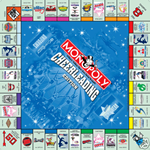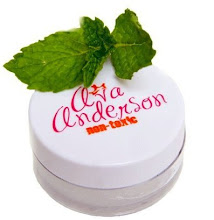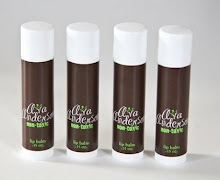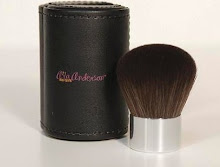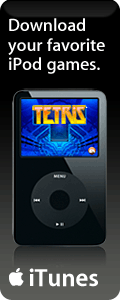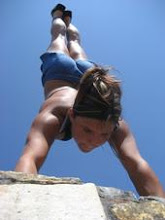The Truth About Energy Drinks
Do energy drinks really rev up your body and sharpen your mind? And what, exactly, are they even made of? To help you separate the science from the sales pitch, we analyzed the claims and ingredients of five of the most popular potions on the market, and rated them from best to worst. All to answer the most important question of all: Are energy drinks safe-or should you can these beverages for good?
Red Bull (8 fl oz)
110 calories27 g sugars76 mg caffeine
The Claim: "With Taurine. Vitalizes body and mind."
The Truth: Caffeine certainly offers brain-boosting benefits, and the added slew of B-vitamins are conceivably helpful for a more efficient metabolism. Unfortunately, the sugar and taurine work to counteract those forces. A New Zealand study found that even the 27 grams of sugar in Red Bull is enough to completely inhibit your body's ability to burn fat. And taurine, an amino acid that works as a neurotransmitter, might act more like a sedative than a stimulant, according to researchers at Weill Cornell Medical College.
Is it safe? Certain European countries have banned the product out of fear that its stimulant properties increase the risk of heart attack. However, a 2008 research study presented to the Federation of American Societies for Experimental Biology observed no negative side effects in people after the subjects quaffed one can. The best thing about Red Bull is the pre-packaged portion control. It's half the size of many other sweetened energy drinks, meaning half the calories and half the sugar of its supersized counterparts.
AMP Energy ((16 fl oz)
220 calories58 g sugars142 mg caffeine
The Claim: "With its energizing blend of B-Vitamins and a specially formulated intense combination of taurine, ginseng, and guarana, AMP keeps you connected and on top of your game at all times."
The Truth: AMP is basically a hybrid between Red Bull and Starbucks Double Shot Energy, but with more calories and sugar and without the brain-beneficial coffee-rendering it a veritable witch's brew of sweeteners, herbal supplements, and suspicious-sounding additives.
Is it safe? Just consider it a double Red Bull. One probably won't hurt, but don't make it a habit, if only for your waistline.
Starbucks Double Shot Energy and Coffee (15 fl oz)
210 calories26 g sugars146 mg caffeine
The Claim: "A powerful, great-tasting brew of B vitamins, guarana, ginseng, and natural proteins from milk. Charged up with coffee. That extra surge to keep you energized and alert."
The Truth: Most energy drinks laud their herbal supplements, but the science behind the add-ins is somewhat fuzzy. Ginseng, for example, won't give you an energy blast, although it might boost your brainpower. For instance, Australian researchers found that people who swallowed 200 mg of the extract an hour before taking a cognitive test scored significantly better than when they skipped the supplement. And guarana's benefit may simply be due to its caffeine content-a guarana seed contains 4 to 5 percent caffeine (about twice as much as a coffee bean). Fancy marketing ploys aside, the Double-Shot ultimately one-ups the competition by virtue of containing actual health-boosting coffee-a beverage that delivers disease-fighting antioxidants.
Is it safe? Ginseng has been shown to interact with certain medications, like the blood-thinner warfarin, potentially altering its effectiveness. And scientists at Florida's Nova Southeastern University concluded that the amount of guarana found in most energy drinks isn't large enough to cause any adverse side effects. However, there's still a question as to the safety of downing a few cans of the stuff in a brief time span.
5-Hour Energy (2 fl oz)
4 calories0 g sugars(Exact caffeine content not provided by the company)
The Claim: "The two-ounce energy shot takes just seconds to drink and in minutes you're feeling bright and alert. And that feeling lasts for hours."
The Truth: Sure, it'll give you a jolt. That's because it's mainly caffeine-about the same amount that's in one cup of coffee, according to label claims. (So somewhere between 65 to 135 mg of caffeine.) And turns out, the half-life of caffeine-the time it takes for half of the stimulant to be eliminated from your body-is about 5 hours. What's more, the company touts that since the product doesn't contain sugar, you won't experience the sugar crash that comes a couple of hours after guzzling the sweet stuff. And that's true, too. Of course, you could just grab a cup of unsweetened Joe for the same effect.
Is it safe? Downing a bottle should be no problem for a regular coffee drinker. Too much caffeine, however, could cause headaches, sleeplessness, nausea, hallucinations, and a spike in blood pressure.
The Worst Energy Drink
Sobe Energy Adrenaline Rush (16 oz)
260 calories66 g sugars152 mg caffeine
The Claim: "Elevate your game with high performance energy for your mind and body. Bold citrus taste enhanced with a unique blend of energizing elements including D-ribose, L-carnitine and taurine. So good."
The Truth: D-ribose and L-carnitine sound exotic, but they're simply natural compounds that your body needs for proper metabolism. While research shows that carnitine supplementation may aid in recovery from exercise, there's no strong evidence to suggest either compound helps improve performance or enhances energy levels. The massive sugar load, however, will certainly spike your energy-for a price. You see, this drink quickly sends blood glucose soaring, which sets you up for a major sugar crash to follow: British scientists discovered that sleep-deprived people who consumed a sugary drink actually had slower reaction times and more sleepiness 90 minutes later.
Is it safe? Not if you're diabetic or pre-diabetic. Sobe Energy Adrenaline Rush contains as much sugar as 5 and a half scoops of Edy's Slow Churned Rocky Road Ice Cream. Additionally, taurine is probably fine in small doses, but chug too many energy drinks and the picture becomes less clear. According to a recent case report from St. Joseph's Hospital in Phoenix, Arizona, three people had seizures after drinking approximately two 24-ounce energy drinks in a short period of time. Whether the seizures were due to caffeine, taurine, or pre-existing health conditions is unclear. So, limit yourself to one-at the most.





